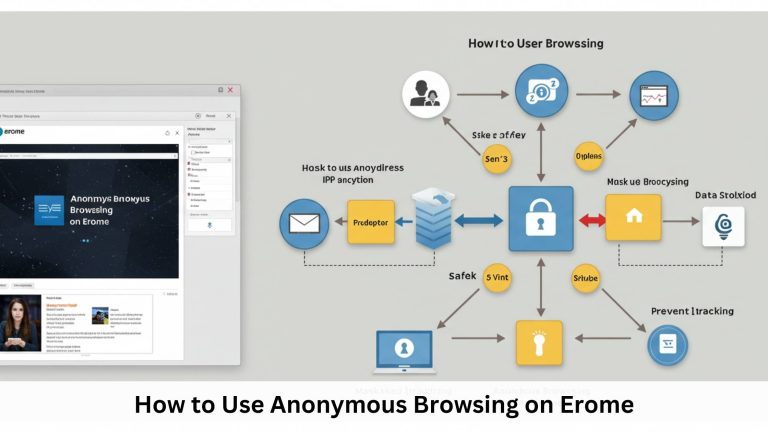High school math can feel like trying to climb Mount Everest in flip-flops. Calculus derivatives seem impossible, trigonometry makes no sense, and don’t even get started on those matrix operations that look like hieroglyphics.
This proves that struggling with complex mathematical concepts doesn’t mean you’re destined to fail – it just means you need the right support system.
The shift toward digital learning has revolutionized how students access help. Online tutors provide personalized support that fits busy schedules and learning styles.
Unlike traditional classroom settings where teachers juggle thirty students at once, math tutors online can focus entirely on your specific challenges and pace.
The Reality of Advanced Math Struggles in High School
Today’s high school students face unprecedented pressure in mathematics. Advanced math tutoring has become essential as curriculum demands continue rising.
Complex Abstract Concepts That Challenge Even Bright Students
Calculus hits differently than basic algebra. When you’re dealing with limits that approach infinity or derivatives that measure rates of change, your brain needs to think in completely new ways.
Pre-calculus throws trigonometric identities at you like curveballs, while statistics demands understanding probability distributions that seem designed to confuse, math tutors online break these intimidating concepts into digestible pieces. Instead of staring at a textbook wondering what the author was thinking, students get real-time explanations that make sense.
Accelerated Pace That Leaves Students Behind
AP courses move at breakneck speed. Teachers race through the material to cover everything before the May exam, often leaving students with gaps in understanding. IB mathematics programmes expect college-level thinking from teenagers who were doing basic algebra just two years earlier.
This rushed environment creates anxiety and confusion. Students find themselves memorizing formulas without truly understanding the underlying concepts.
Technology Integration Gaps
Graphing calculators aren’t just tools anymore – they’re practically required appendages for advanced math success. Computer algebra systems and mathematical modeling software add another layer of complexity that many students haven’t mastered.
Learning mathematical concepts while simultaneously figuring out complex technology creates a double challenge that traditional classrooms often can’t address adequately.
Personalized Learning That Works
Mastering math concepts requires more than just practice problems and homework help. It demands understanding how each student’s mind processes mathematical information.
AI-Powered Assessment Identifies Real Problems
Modern tutoring platforms use sophisticated algorithms to pinpoint exactly where students struggle. These aren’t generic quizzes – they’re diagnostic tools that adapt in real-time based on student responses. The system identifies patterns in mistakes and creates customized learning paths.
This technology eliminates guesswork. Instead of spending time reviewing concepts you already understand, sessions focus on genuine problem areas.
One-on-One Attention Builds Confidence
Individual attention changes everything. Online tutors can immediately recognize when a student’s confused expression means they’re lost, not just thinking. They adjust explanations, try different approaches, and provide encouragement that builds genuine mathematical confidence.
Students develop problem-solving strategies that work for their specific thinking style. Some need visual demonstrations, others prefer step-by-step logical breakdowns.
Curriculum Alignment Ensures Relevance
Effective tutoring aligns with school requirements. Tutors work with the same textbooks, support specific assignments, and prepare students for upcoming tests. This coordination prevents the frustration of learning different methods or conflicting approaches.
Revolutionary Technology Tools Transform Learning
Traditional tutoring involved sitting across from someone with a pencil and paper. Today’s online math tutoring uses cutting-edge tools that make complex concepts crystal clear.
Interactive Digital Whiteboards
These aren’t your grandfather’s chalkboards. Digital whiteboards allow real-time collaboration where students and tutors manipulate equations together. Visual learners can see functions graphed instantly, while kinesthetic learners interact directly with mathematical objects.
Screen sharing transforms homework review sessions. Tutors can annotate student work, highlight errors, and demonstrate corrections immediately.
Gamification Elements Increase Engagement
Achievement badges for conquering difficult concepts tap into natural competitive instincts. Leaderboards create healthy competition among peers, while mathematical puzzle challenges make practice feel less like work.
Progress tracking through game mechanics motivates what traditional methods lack. Students see their advancement visually, celebrating small wins that build toward breakthroughs.
Virtual Reality Applications
Advanced platforms now offer 3D visualization of mathematical concepts. Geometric proofs become interactive experiences where students manipulate shapes in virtual space. Calculus functions appear as three-dimensional objects that students can explore from different angles.
Subject-Specific Strategies for Success
High school math help must address the unique challenges of different mathematical disciplines. Each subject requires specialized approaches.
Calculus Mastery Techniques
Limits cause the most confusion in introductory calculus. Effective tutors use multiple visualization methods to show how functions behave as they approach specific values. They connect abstract limit concepts to real-world applications like calculating instantaneous velocity.
Derivative applications become clearer when connected to familiar situations. Students understand rates of change better when they see how derivatives apply to population growth, economics, or physics problems they encounter elsewhere.
Advanced Statistics Support
Hypothesis testing intimidates many students because it requires statistical reasoning that differs from computational math. Tutors guide students through each step methodically, explaining why certain procedures work and when to use them.
Regression analysis interpretation often confuses students who can calculate correlation coefficients but struggle to understand what the numbers mean. Quality tutoring connects statistical results to meaningful conclusions.
Pre-Calculus Foundation Building
Trigonometric identity proofs require logical thinking that many students haven’t developed. Tutors teach proof strategies and logical reasoning techniques that apply across mathematical disciplines.
Logarithmic and exponential functions challenge students because they invert familiar operations. Effective instruction emphasizes the relationship between these inverse operations through visual and algebraic approaches.
Flexible Scheduling Meets Modern Life
High school students juggle academics, extracurriculars, part-time jobs, and social lives. Traditional tutoring schedules often conflict with these competing demands.
24/7 Availability Changes Everything
Late-night homework crises happen. Weekend review sessions become crucial before Monday’s test. Holiday breaks provide opportunities for intensive concept review without school distractions.
Online tutors adapt to student schedules rather than forcing students to adapt to arbitrary time slots. This flexibility dramatically improves engagement and consistency.
Micro-Learning Sessions Provide Quick Help
Sometimes students need quick clarification on a single concept rather than full tutoring sessions. Fifteen-minute focused sessions can resolve specific confusion without requiring major time commitments.
These brief interactions maintain learning momentum. Students don’t get stuck on problems for hours when quick expert guidance can provide immediate clarity.
| Tutoring Approach | Session Length | Best For | Availability |
| Traditional In-Person | 60-90 minutes | Comprehensive review | Limited hours |
| Online Tutoring | 15-90 minutes | Flexible needs | 24/7 support |
| Group Classes | 45-60 minutes | General instruction | Fixed schedule |
| Self-Study Apps | Variable | Independent learners | Always available |
Building Mathematical Confidence
Mathematics anxiety affects millions of students. Fear of making mistakes or appearing stupid prevents many bright students from asking crucial questions.
Overcoming Math Anxiety
Effective tutors create safe environments where mistakes become learning opportunities rather than embarrassments. They teach stress management techniques and help students develop positive self-talk strategies.
A success celebration builds momentum. Tutors acknowledge progress, no matter how small, helping students recognize their growing competence.
Developing Independent Problem-Solving
The goal isn’t creating tutor-dependent students. Quality instruction teaches meta-cognitive strategies – thinking about thinking. Students learn to monitor their understanding, recognize when they’re confused, and select appropriate problem-solving approaches.
Self-correction techniques help students identify their errors before submitting work. This skill proves invaluable during tests when no external help is available.
Explore: https://megapersonals.co.com/blog/what-is-erome/
FAQs
How quickly can online tutoring improve my math grades?
Most students see improvement within 4-6 weeks of consistent sessions, though individual results vary based on current skill level and commitment.
Do online math tutors work effectively for AP Calculus preparation?
Yes, many online tutors specialize in AP courses and understand the specific requirements, pacing, and exam format needed for success.
What technology do I need for effective online math tutoring sessions?
Basic requirements include reliable internet, a computer or tablet with a camera, and ideally a digital stylus for writing equations.
Final Thoughts
Advanced mathematics doesn’t have to be the enemy of your academic success. With proper support from qualified online tutors, even the most challenging concepts become manageable. The combination of personalized attention, flexible scheduling, and innovative technology creates learning opportunities that simply weren’t available to previous generations.
Success in advanced math opens doors to STEM careers, college opportunities, and lifelong problem-solving skills. Perhaps more importantly, conquering these mathematical challenges builds confidence that extends far beyond the classroom.






